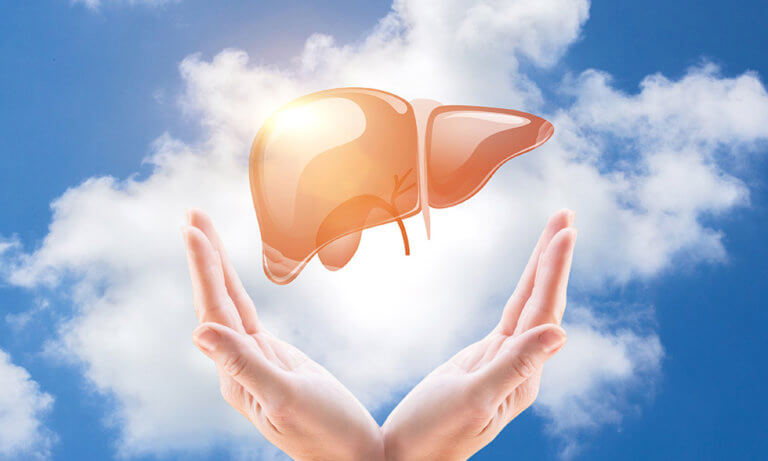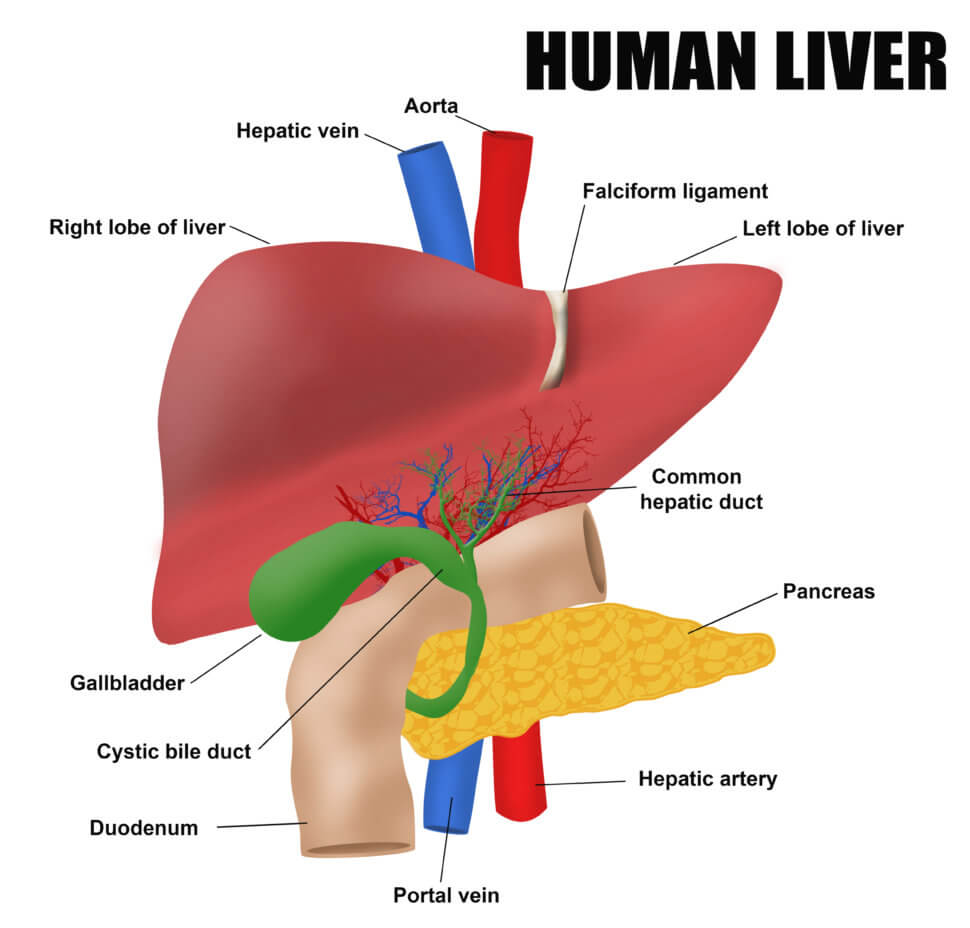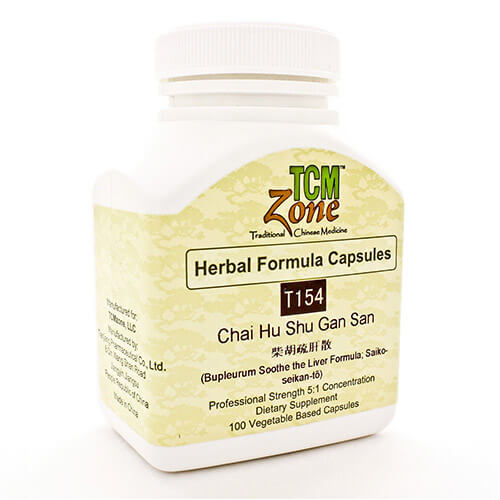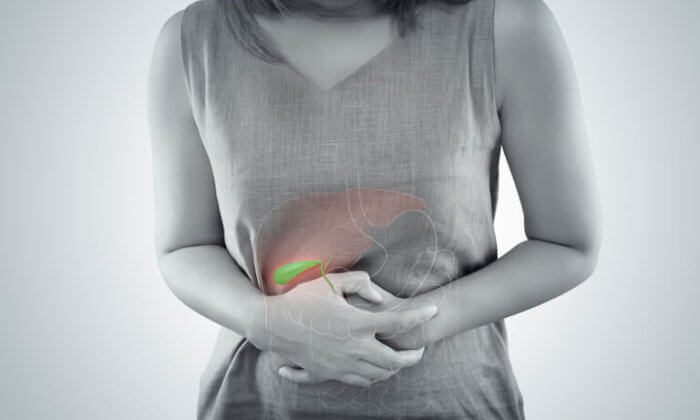How to Make Peace and soothe your liver
A peaceful, healthy liver assures sustainable wellness, healthy weight, and abundant energy.
| | Reading Time: 8 minutes

Your liver is much more than a fleshy organ. It’s a metabolic powerhouse processing system that makes life possible. Most of the time, it works well with little maintenance. But sometimes things go wrong, and your liver becomes sick or underperforms. How do you restore liver function? How can you make peace with a cranking liver? How to soothe your liver?
A regular lifestyle helps general wellness, like going to bed at a set time every night and getting up regularly in the morning. And diet also helps, including eating organic fresh vegetables and getting enough fiber. Drinking enough pure water is essential. But, you’ll have to do a lot more than start changing to healthier habits to fix your liver.
You likely know about liver health’s basic rules, like drinking fresh vegetable juices, especially beet juice, and not eating fatty or fried foods. But do you know what to do if your liver is cranky? Before diving into the “how-to” part of this article, let’s review some facts about the liver.
Your Liver: An Amazing, Complicated, Vital Organ
The liver is the largest organ in your body, and at about 3 pounds, it’s the heaviest. An adult’s liver’s average size is 5 inches in diameter and a little over 3 inches long. Not surprisingly, men have a larger liver than women, and they have more liver disease than men.
Anatomically, the liver is behind the lower ribs of the right upper abdomen. And on top of the stomach, next to the spleen. It’s connected to the gallbladder, where bile is stored to assist digestion. The liver has two sources of blood. Oxygen-rich blood flows into the liver through the hepatic artery, and nutrient-laden blood comes in from the small intestine and other digestive organs.

Your liver works hard every day of your life, performing over 500 hundred functions, including the metabolism of carbohydrates, proteins, and fats. It manages the detoxification of chemicals, drugs, and environmental pollutants. And, it performs essential immune functions. Metabolism and liver function is vital for immune homeostasis, modulating how your body defends against infections like influenza or coronavirus. And it regulates how well you can or cannot live with chronic disease.
Symptoms of an Underperforming Liver:
- Abdominal bloating and gas
- Abdominal discomfort
- Acid reflux and heartburn
- Acne and rosacea
- Constipation
- Dark urine
- Easy bruising
- Excessive sweating
- Fatigue and malaise
- Inability to lose weight
- Moodiness, anxiety, or depression
- Obesity
- Low appetite
- Stool changes
- Yellowing of the skin and eyes
As a rule, your liver performs well without help and lasts a lifetime. However, people can easily damage their liver, sometimes fatally, by years of overeating, excessive drinking of alcohol and caffeine, and exposure to viral infections.
What Causes Severe Liver Damage?
- Alcohol
- Acetaminophen
- Nearly all oral prescription drugs
- Eating uncooked shellfish
- Eating poisonous wild mushrooms
- Chronic viruses that infect the liver like hepatitis A, B, C
The liver has an almost superhuman power for regeneration. A surgeon can remove 50-85 percent of the liver, and it will grow back in weeks. It’s the only organ that can regenerate itself.
Conditions Associated with Disrupted Liver Function:
- High blood pressure
- Diabetes
- Chronic viral infections
- Liver cancer
- Autoimmune diseases
- Cirrhosis
- Fatty liver
- Dysmenorrhea
- Chronic fatigue syndrome
- Food intolerance

How To Soothe your Liver
Sometimes, your liver gets a little cranky. It’s not diseased like when you have a fatty liver or develop cirrhosis, so soothing an out-of-sorts liver is the right approach. First, lighten up on too many sweets, including fruits, avoid fatty foods, and pass on that second glass of wine. Instead, drink plenty of pure water, try fresh green juices and beet juice, and take liver-friendly herbal remedies.
- Five large organic carrots
- One large whole organic beet
- An equal amount of raw purple cabbage
- One whole organic apple
- A thumb-size piece of fresh ginger
The liver is a significant organ in traditional Chinese medicine (TCM). In TCM, the liver is not only essential for healthy digestion but is also in charge of the emotions and supports the smooth flow of qi and blood. Emotionally, it’s linked to anger and depression. And, it’s the source of endurance. Liver dysfunction is associated with unrefreshed sleep, tiring quickly, chronic fatigue, and mood disorders.
According to TCM, Chai Hu (Bupleurum chinense) is a crucial herbal remedy for liver disorders. In nature, it’s a skinny weed with yellowish flowers and long thin roots. The medicine is in these roots. Bupleurum contains flavonoid compounds that protect the liver. The most studied family of compounds in bupleurum roots are saikosaponins: immune-modulating and anti-inflammatory compounds with an affinity for liver cells.
Take Bupleurum as a tincture or even better try Chai Hu Shu Gan San (Bupleurum Sooth the Liver Formula), a popular over the counter TCM remedy for all things that ail the liver. Bupleurum is generally safe, but water extracts are easier on the liver than alcohol-based tinctures. Take two capsules of Chai Hu Shu Gan Wan three times daily for one month. Some prefer the granule form mixed in warm water as a tea. Drink two cups daily between meals—order online, from a traditional Chinese pharmacy, or get prescription-strength products from your acupuncturist or TCM practitioner.

How Do I soothe My Liver?
Remember, a well-functioning liver benefits every aspect of your health. A toxic, burdened liver is an unhappy liver. A depressed liver quickly becomes an angry liver. For your liver to function normally again, learn how to make peace with a cranky liver by giving it the micronutrients it needs from foods and herbs.
Significantly Reduce or Abstain from Alcohol: Don’t drink alcohol, at least not daily, and never in excess. Consuming more than three drinks daily for men and two for women is considered dangerous for liver health.
Avoid Chronic Malnutrition: Your body requires energy for all of your organs to function well. Although periodic fasting or limited intermittent fasting is healthy when done on occasion, suboptimal nutrition can challenge normal liver function. Get sufficient calories. Restricting calories is unnecessary and counterproductive for long-term weight loss and undermines normal metabolism. Low electrolytes, especially not enough potassium, undercuts liver function.
Manage Your Weight: Obesity and fatty liver disease go together. For a healthy liver, maintain an average weight. Overeating and a sedentary lifestyle leads to weight gain and is a factor in developing non-alcoholic fatty liver disease. Be more active.
Avoid Exposure to Environmental Chemicals: Over 100 chemicals can cause liver disease. Pesticides are the most toxic to the liver, as are PCBs.
Prevent Viral Infections: Chronic hepatitis viral infections can permanently scar large areas of the liver. In its most severe form, Hepatitis B and C can cause liver failure.
Do Not Take Acetaminophen: Prolonged overuse of acetaminophen (paracetamol), or in people genetically sensitive to acetaminophen, may cause severe liver toxicity.
Eat Liver-Friendly Foods: Choose organic foods cooked fresh. Include these liver-friendly foods in your diet.
- Artichokes
- Beets and beet juice
- Cruciferous vegetables and cabbage juice
- Dandelion greens
- Eggs
- Garlic and onions
- Green tea
- Legumes
- Wheat and barley grass juice
Take Liver-Supportive Supplements: Take herbs and supplements to help your liver detoxify. The list of liver soothing herbs and liver supportive supplements is extensive. Here are the ones I prescribe to my patients.
- Mixed tocotrienols (from palm oil) 100-200 mg twice daily
- Silymarin flavonoids (from milk thistle seed extract) 150-250 mg twice daily
- Phosphatidylcholine (from soy – avoid if you’re sensitive to soy products)
- Alpha-Lipoic Acid 300-600 twice daily
- N-Acetyl-L-Cysteine 500 mg twice daily
- Curcumin phytosome (from Curcuma longa root extract) 500-1000 mg twice daily
- L-Taurine 1,000 mg twice daily

Safety and Precautions
If you’re healthy now but feeling unwell, it’s safe to improve liver function on your own. Choose water extracts for liver-supportive herbs. Do not use for children or during pregnancy. If you have severe or persistent symptoms associated with liver disease, see your doctor for a physical examination, lab tests including hepatic function studies, and an abdominal ultrasound. Seek professional help before you begin a liver detox program if you have diagnosed liver, gallbladder, or pancreas disease.
SUMMARY: You can’t be healthy without fully functional liver. If you have any of the health conditions listed above, adopt a liver-soothing lifestyle and make peace with your liver before trying an intensive liver detox cleanse or gallbladder flush.
For More Information:
- Order pharmaceutic grade supplements, including Dr. Williams’ protocols from his blogs, on Wellevate or Fullscript.
- Check out his books Viral Immunity and Beating the Flu, as well as other books and articles about the coronavirus pandemic on Medium.
- Sign up for next Q&A on natural health, where he teaches the key “how to” points on recent blogs.
Signup for Wellevate to get Dr. Williams recommended liver supplement protocol.
References
Armstrong, L. E., & Guo, G. L. (2019). Understanding Environmental Contaminants’ Direct Effects on Non-alcoholic Fatty Liver Disease Progression. Current Environmental Health Reports, 6(3), 95–104. https://doi.org/10.1007/s40572-019-00231-x
Balaban, Y. H., Aka, C., & Koca-Caliskan, U. (2017). Liver immunology and herbal treatment. World Journal of Hepatology, 9(17), 757–770. https://doi.org/10.4254/wjh.v9.i17.757
Guy, J., & Peters, M. G. (2013). Liver disease in women: The influence of gender on epidemiology, natural history, and patient outcomes. Gastroenterology and Hepatology, 9(10), 633–639.
Heath, R. D., Brahmbhatt, M., Tahan, A. C., Ibdah, J. A., & Tahan, V. (2017). Coffee: The magical bean for liver diseases. World Journal of Hepatology, 9(15), 689–696. https://doi.org/10.4254/wjh.v9.i15.689
Heidari, R., Jamshidzadeh, A., Niknahad, H., Mardani, E., Ommati, M. M., Azarpira, N., Khodaei, F., Zarei, A., Ayarzadeh, M., Mousavi, S., Abdoli, N., Yeganeh, B. S., Saeedi, A., & Najibi, A. (2015). Effect of taurine on chronic and acute liver injury: Focus on blood and brain ammonia. Toxicology Reports, 3, 870–879. https://doi.org/10.1016/j.toxrep.2016.04.002
Hong, M., Li, S., Tan, H. Y., Wang, N., Tsao, S. W., & Feng, Y. (2015). Current status of herbal medicines in chronic liver disease therapy: The biological effects, molecular targets and future prospects. International Journal of Molecular Sciences, 16(12), 28705–28745. https://doi.org/10.3390/ijms161226126
Klein, A. V., & Kiat, H. (2015). Detox diets for toxin elimination and weight management: A critical review of the evidence. Journal of Human Nutrition and Dietetics, 28(6), 675–686. https://doi.org/10.1111/jhn.12286
La Vecchia, C. (2005). Coffee, liver enzymes, cirrhosis and liver cancer. Journal of Hepatology, 42(4), 444–446. https://doi.org/10.1016/j.jhep.2005.01.004
Liu, Z.-W., Shu, J., Tu, J.-Y., Zhang, C.-H., & Hong, J. (2017). Liver in the Chinese and Western Medicine. Integrative Medicine International, 4(1–2), 39–45. https://doi.org/10.1159/000466694
Maher, J. J. (1997). Exploring alcohol’s effects on liver function. Alcohol Research and Health, 21(1), 5–12.
Yoon, E., Babar, A., Choudhary, M., Kutner, M., & Pyrsopoulos, N. (2016). Acetaminophen-Induced Hepatotoxicity: a Comprehensive Update. Journal of Clinical and Translational Hepatology, 4(2), 131–142. https://doi.org/10.14218/jcth.2015.00052
Yuan, B., Yang, R., Ma, Y., Zhou, S., Zhang, X., & Liu, Y. (2017). A systematic review of the active saikosaponins and extracts isolated from Radix Bupleuri and their applications. Pharmaceutical Biology. https://doi.org/10.1080/13880209.2016.1262433


